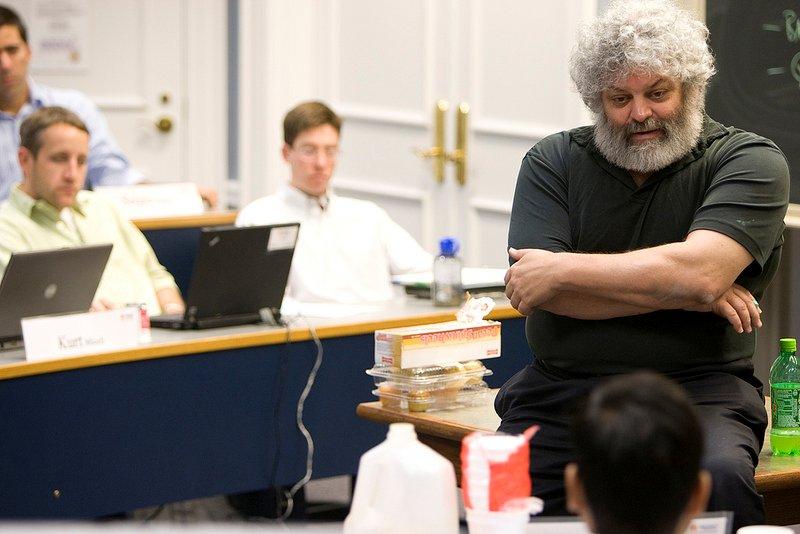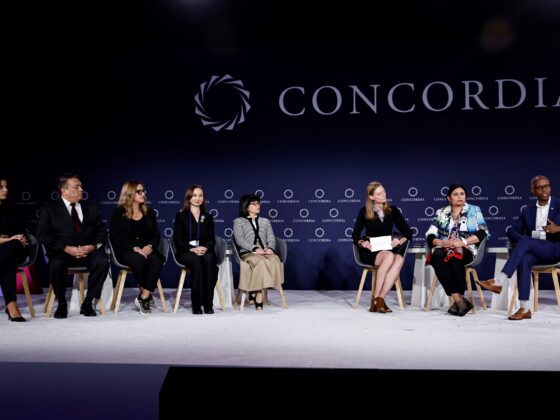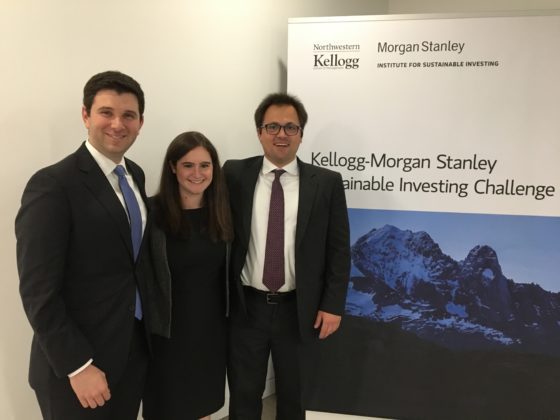By Esther Jan
We have all heard it before – the predominant negative narrative that businesses are all out to make a buck. That the primary role of business is to maximize profits for shareholders. That most business leaders operate in a “greed is good” paradigm, along with any other number of trite business-related phrases we have heard repeatedly in movies, on tv and in the news headlines.
In his lecture as the Verizon Visiting Professor in Business Ethics at Bentley University’s W. Michael Hoffman Center for Business Ethics entitled, The New Story of Business: Towards a More Responsible Capitalism, international expert on stakeholder theory Professor R. Edward Freeman describes several fundamental principles for how we could change this negative narrative of business.
Freeman suggests shifting from an outdated and hierarchical “old story of business,” which assumes companies’ primary responsibility should be maximizing shareholder profits, to a “new story of business,” where organizations are not driven solely by profits, but instead by purpose, values and ethics. He proposes six ideas that undergird this new story of business and moving towards a more responsible capitalism:
- The unit of analysis is stakeholder relationships.
The view of the shareholder primary idea, best articulated by Milton Friedman in a 1970 New York Times article, claims that profit maximization for shareholders is the sole purpose of businesses. Freeman argues that this, however, does not work – businesses are not simply about shareholders. Besides shareholders, businesses also involve employees, suppliers, customers, and so on. In order for a business to operate successfully, the business leader needs to consider its impact on all of its stakeholders.
- Stakeholders are interdependent.
“It has often been said that the key insight of stakeholder theory is that there are groups that are important other than shareholders.” Freeman argues that, while that is true, the more important idea of stakeholder theory is that stakeholders are interdependent. It is possible for business leaders to capture this interdependence, and propose solutions that creates value for all stakeholders. For example, Nestle has pioneered the idea of shared value, by creating value for individuals, for communities, and for the planet.
- Trade-offs are managerial failures of creative imagination.
In modern economics, trade-offs are deemed as inevitable – every decision involves giving up the next best alternative. Freeman explains that, as a result, trade-offs are often used as an excuse to make certain unethical business decisions. Examples of business scandals often involve the CEO defending himself/herself by asserting that certain decisions have to be made for the sake of the business. Trade-offs, however, are merely managerial failures. With the use of creative imagination, business and ethics can go together; one does not have to be sacrificed for another. Business leaders need to learn to practice creative imagination to find ways to satisfy multiple stakeholders.
- Purpose, values and ethics must be embedded in the organization.
Freeman proposes that, as the idea of “shared value” advocates, economic value and social value must go hand in hand. It is a mistake to assume profit maximization as the sole responsibility of businesses. Hence, businesses leaders should incorporate a sense of values and ethics into their businesses. Freeman explains that there are plenty of successful businesses doing this right now. For example, Novo Nordisk wants to defeat diabetes, Whole Foods Market wants to promote healthy eating, and Relish MBA wants to help MBA students find jobs.
- Businesses exist in the physical world.
Freeman suggests that “we do need to come to see business as embodied in the world, and hence, there are constraints imposed by the physical world. However, we also need to see business as capable of transforming those constraints into new opportunities.” Problems like climate change, natural resource repletion, and pollutions of all types impact everyone, including businesses. Business leaders need to attempt to integrate green values into their businesses by finding innovative ways to tackle environmental problems. An example of a company that does this is 3M, which discovered ways to turn waste streams into products and services.
- People are complicated.
The classic economic model suggests that people are all rational actors driven by self-interests. However, Freeman argues that, in reality, people are more than narrow economic creatures – they care not just about economic profits, but also about social problems like poverty, inequality of education, and prevalence of diseases. As a result, people work collaboratively to tackle the problems that they cannot address alone. Business leaders need to understand the value of collaboration, and work with stakeholders to solve the problems they care about.
Through these principles and several follow-up actions that Freeman suggests, he proposes that it is possible to change the old, negative narrative of business. Freeman also issues a challenge to business: “Communicate how your organization makes the world a better place. We need business organizations to inspire us. We need business to become an institution of hope. We need business executives to try and remake their organizations to be places where we would one day want our children to work. Asking anything else is to set the bar too low.”
More of Professor Freeman’s ideas can be found in detail in The New Story of Business: Towards a More Responsible Capitalism.
This is the third of three blogs on Ed Freeman and The New Story of Business. Read the first two blogs in this series here:





